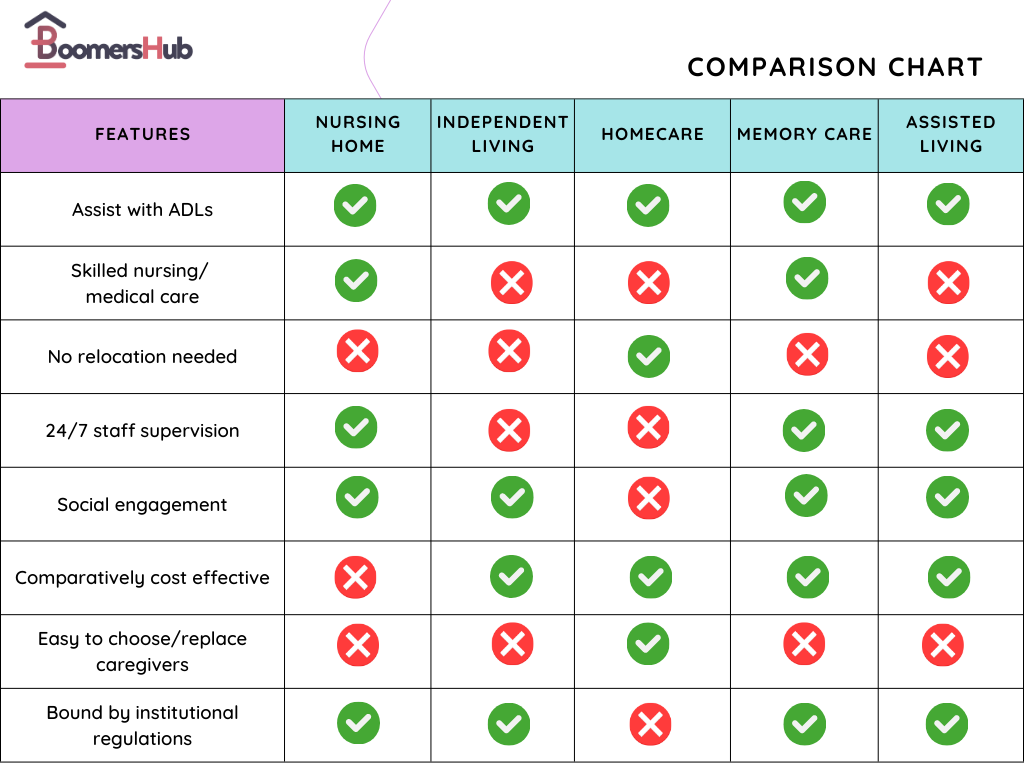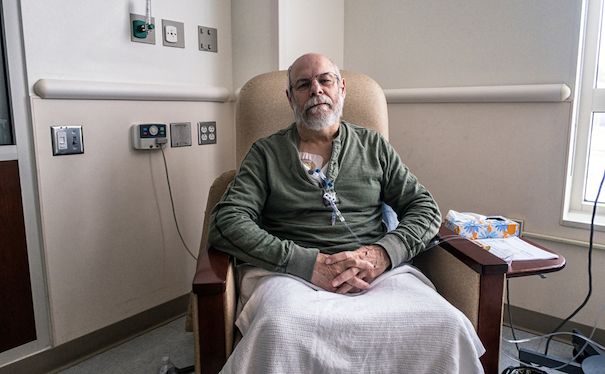Article Contents
Are you or a loved one considering senior care facilities? For many seniors, nursing homes are the go-to option for long-term care. But they can be expensive and often lack the personal touch many seniors crave. Fortunately, there are plenty of nursing home alternatives that offer the care and support you need without sacrificing your independence.
In this blog, we will look into the various alternatives to nursing home care available for elderly individuals. So, if you are keen on learning more about the possibilities beyond the traditional nursing home model, read on!
What are the pros and cons of nursing homes?
Before making a shift to a nursing home, it is essential to evaluate the upsides and downsides of the move. So, let’s have a look at the pros and cons of nursing homes.
Pros:
- 24-hour care: Nursing homes provide around-the-clock medical care and supervision for elderly residents who need it.
- Socialization opportunities: Nursing homes offer residents the chance to socialize with peers, participate in group activities, and make new friends.
- Access to healthcare professionals: Nursing homes have trained staff on hand to help with medical needs, including medication management and physical therapy.
- Specialized care: Some nursing homes offer specialized care for residents with specific medical needs, such as dementia or Alzheimer’s disease.
- Relief for caregivers: Nursing homes can provide a much-needed break for family members who are caring for an elderly loved one at home.
Cons:
- Cost: Nursing homes can be expensive, and not all insurance plans cover the cost.
- Lack of independence: Some seniors may feel that moving into a nursing home takes away their independence and control over their lives.
- Potential for abuse: Unfortunately, nursing home residents can sometimes be subject to abuse or neglect at the hands of staff members or fellow residents.
- Isolation: While nursing homes offer socialization opportunities, some residents may feel isolated from their families and communities outside the facility.
- Quality of care: Not all nursing homes provide the same level of care, and some may have a reputation for neglect or subpar medical treatment.
What are the nursing home alternatives?
As we said, nursing homes are not the only option for seniors who need extra support and care. So, let’s explore some alternatives to nursing homes and their benefits.
1. Nursing Home vs Homecare
One of the most popular alternatives to nursing homes is in-home care, which allows seniors to age in place in their homes. One of the benefits of home care is that it allows seniors to sustain their independence and autonomy while receiving the care they need. They can continue to live as they always have, with the added support of a caregiver.
Another advantage is that it can be more cost-effective than nursing homes, as the cost of care is based on the services needed rather than a flat rate. Besides, home care allows older adults to choose or replace their caregivers, which might be difficult in nursing facilities.
2. Nursing Home vs Assisted Living
Assisted living facilities are another alternative to nursing homes. Along with care services, they offer a more homely feel than nursing homes, with a focus on community and social engagement. Residents typically live in private apartments or shared rooms and have access to communal spaces for meals and social activities. In addition, residents can participate in a range of activities and events, from fitness classes to movie nights, and can form meaningful connections with their peers.
However, assisted living communities may not be suitable for seniors who require round-the-clock medical care. Because they primarily provide assistance with activities of daily living (e.g., bathing, cooking, grooming, etc.), and some additional services such as housekeeping, medication management, and transportation.
3. Nursing Home vs Independent Living
Independent living could be a good nursing home alternative for seniors who are relatively healthy and need minimal help with everyday tasks. Independent living or retirement communities offer various services and amenities, including housekeeping, nutritious meal plans, transportation, etc. In addition, these communities provide opportunities for social engagement and activities.
But independent living may not be suitable for older adults requiring round-the-clock medical assistance. Because these communities are not equipped with the necessary staff or tools to provide health care services to the residents. So, deciding on the level of care needed and researching the facility services before moving in is recommended.
4. Nursing Home vs Memory Care
Memory care is designed for older adults with Alzheimer’s disease or other forms of dementia. These communities offer specialized care, with staff trained to support and assist those with memory impairment. In addition, most memory care facilities have a physical layout designed to minimize the residents’ confusion and disorientation.
Additionally, their staff and caregivers are highly trained in handling difficult situations and providing programs and activities tailored to each resident’s needs and abilities. That includes physical, speech, or occupational therapies, brain-stimulating activities, group activities, memory-enhancing games, and many more.

Nursing home alternatives
Some other alternatives to nursing homes
Other senior care options are also available besides the four major nursing home alternatives. Here are some options:
1. Continuing Care Retirement Communities (CCRC)
Continuing care retirement communities (CCRCs) provide various care options in one place. For example, in CCRCs, seniors can move into a community that offers independent living, assisted living, and skilled nursing care. So, as their care requirements evolve, it enables individuals to stay in the same community.
2. Hospice care
For those with terminal illnesses, hospice care provides comfort and support for both the patient and their family, either at home or in a hospice facility. In addition, hospice care offers a range of services to help patients manage pain, control symptoms, and maintain their dignity and quality of life.
3. Respite care
Respite care provides short-term relief for family caregivers who are experiencing burnout. This care can be customized and can last from a few hours to several weeks. Trained professionals provide everything from basic companionship to advanced medical care, depending on what’s required. That means you can have peace of mind knowing your loved one is in good hands.
4. Adult daycare
Adult daycare centers can be a great option for seniors who need care and supervision during the day. They provide socialization, activities, and medical care in a more affordable and flexible setting.
Final thoughts
As we can see, there are several alternatives to nursing homes that can provide safe and effective care for older adults. However, it is important to note that each individual has unique needs and preferences, and it is crucial to consider all available options before making a decision.
We hope that this post has provided valuable insights and information on nursing home alternatives. By considering all options, older adults can receive the care and support that they need to live happy, healthy, and fulfilling lives.
Related articles:
FAQs
- What is the difference between nursing home and hospital care?
There are some key differences between nursing home and hospital care. For example, Hospitals are designed to provide acute medical care to sick or injured individuals, while nursing homes are intended to provide long-term care and support. Besides, Hospitals focus on diagnosing and treating medical conditions, while nursing homes focus on managing chronic conditions and providing comfort care. Another difference is that Hospital stays are typically short-term, while nursing home stays are generally longer.
- Do all dementia patients need nursing care?
Not all dementia patients need nursing care, as the level of care required depends on the severity of dementia and the patient’s overall health. Some patients with mild cognitive impairment may not require nursing care and can manage their daily activities independently. However, patients with advanced dementia or those with coexisting medical conditions may require nursing care to manage their symptoms and provide assistance with daily activities.
- Can a doctor force you into a nursing home?
If you are unable to care for yourself and live alone, a doctor may recommend a nursing home as the best option for your health and safety. But they cannot force you into a nursing home against your will.

